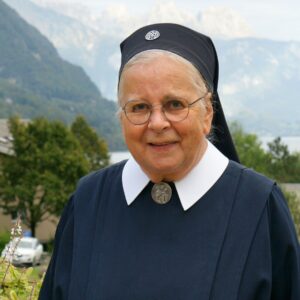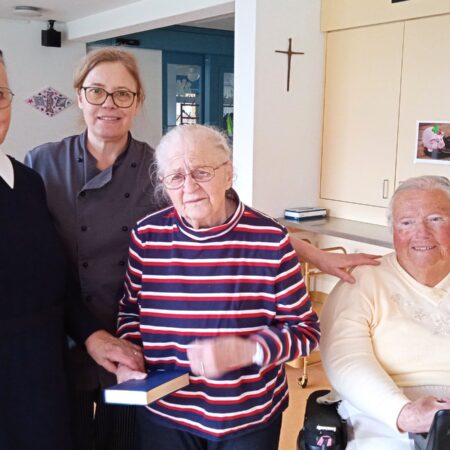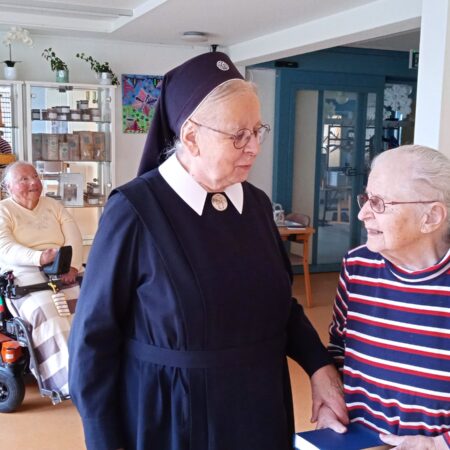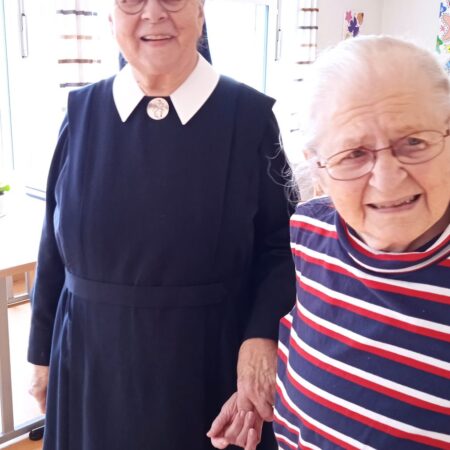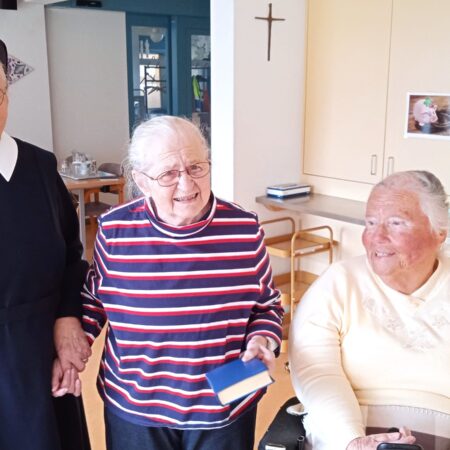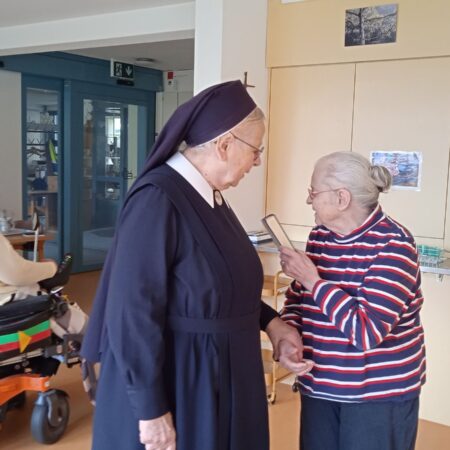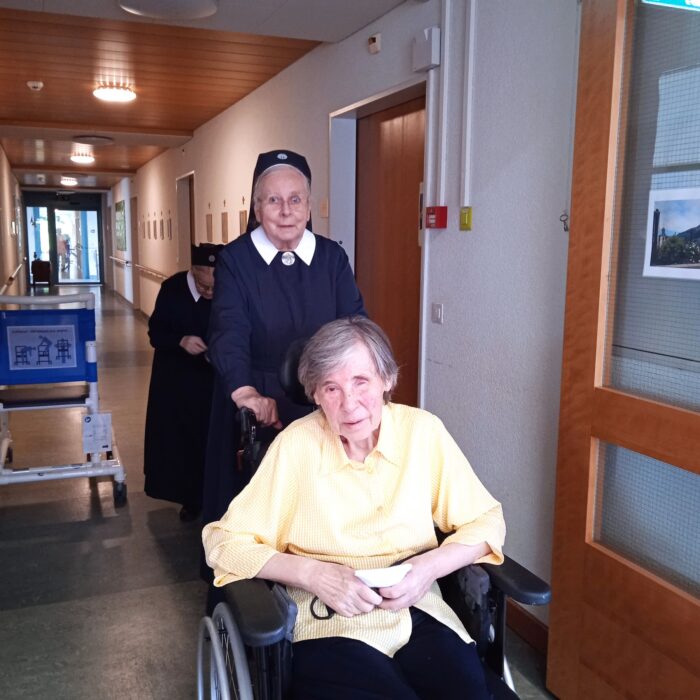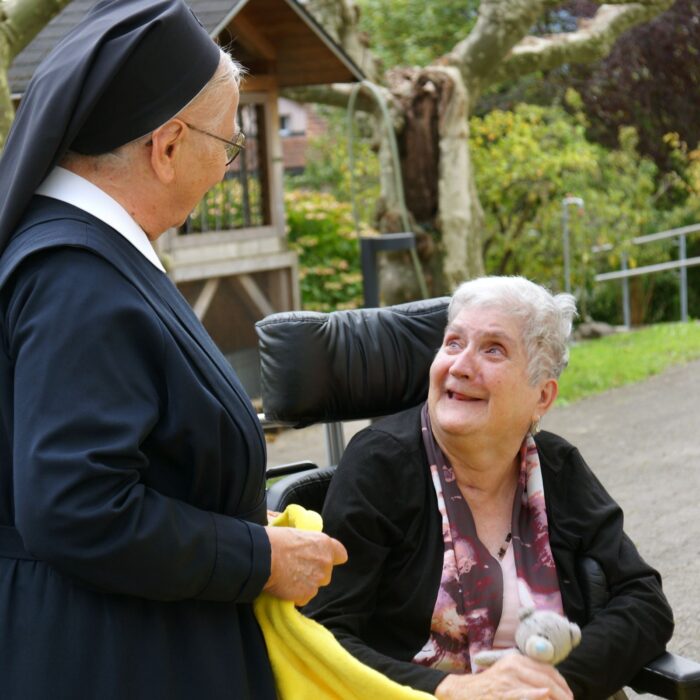Interview with
Sister Rita-Maria Alessi
– Part 1 –
Sister Rita-Maria Alessi has been part of the community of the Schoenstatt Sisters of Mary for 54 years. For 45 years she has lived and worked in the St. Josef residential home in Weesen, a home for adult women with physical or mental disabilities that has belonged to the Schoenstatt Sisters of Mary since 1946.
Even today, the 79-year-old still works as a volunteer in the dormitory; She offers a gymnastics lesson every week.
Sister M. Florence Harder asked the following questions:
Sister Rita-Maria, you worked as a department head and carer for the disabled at the St. Josef residential home for over 30 years. What does that mean to you?
Very much! I liked this task from the start. I often felt like a mother to the disabled because many of them no longer had any relatives. But here they have everything: a home, someone to talk to, the care they need, a varied program.
Are there still residents today for whom the dormitory is their only home?
Yes, there are residents who no longer have any relatives. And they are truly at home here; this is their home.
In fact, there is a special atmosphere here. “A house of kindness” – that’s what Sister M. Theresiane calls this house.
That’s correct. Our mission statement is: “House with heart.” This truly human atmosphere, this beautiful togetherness, that is what creates home. The trainees also learn how to create an atmosphere – and of course we sisters who live here also contribute to this, even if we are no longer involved in care or other everyday processes.
What do you particularly value about disabled people?
They radiate so much contentment and gratitude. It sounds paradoxical – but it is precisely because they depend on help and receive it that they are so grateful. And that has a repercussion. In your daily interaction with the residents you get so much in return – even if it is “just” a smile. Serving gives joy.
What is dignity for you?
To see every person as an image of God, unique and infinitely valuable. Anyone who has this perspective will have the right approach to life. I always accepted the residents as full persons. With some of them I stayed with “they” all these years because they wanted it that way. This expression of awe was important to me. I always had the principle of treating disabled people the way I would like to be treated myself in the same situation.
For me one thing is certain: every life is infinitely valuable! I am convinced that many people long for the message that their existence is a gift and that they are valuable and important. God has a message associated with every life – even if someone cannot speak. When a woman with a mental disability beams at me, that sends a much stronger message to me than any nice word.
Is there a motto or principle that you base your work on?
When I was still a young sister and my mother found out that I was going to be head of the department, she gave me the following advice:
“You should never give preference to one resident and should treat everyone equally.”
This has often occurred to me.
I always loved those who were the poorest, those who needed my help the most. They were the ones who needed my love the most, precisely because they were so helpless.
– Part 2 follows –
Photos: Sr. M. Florence Harder, Quarten, Switzerland
